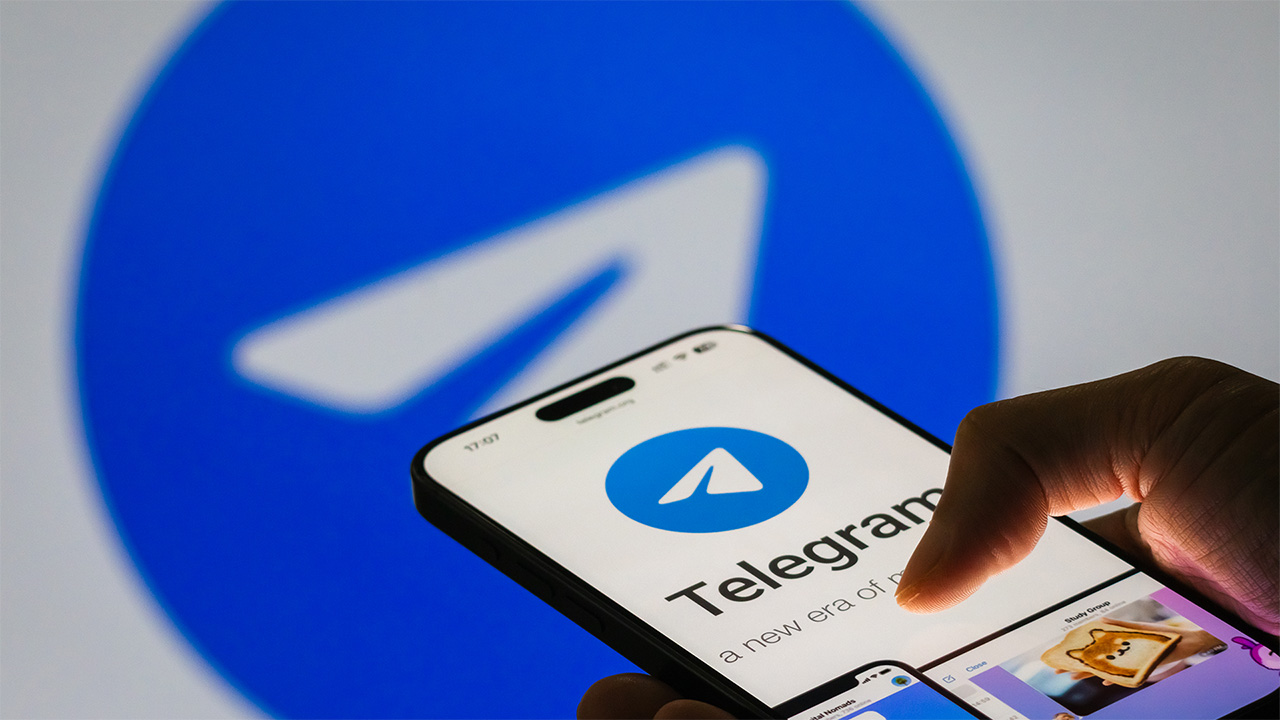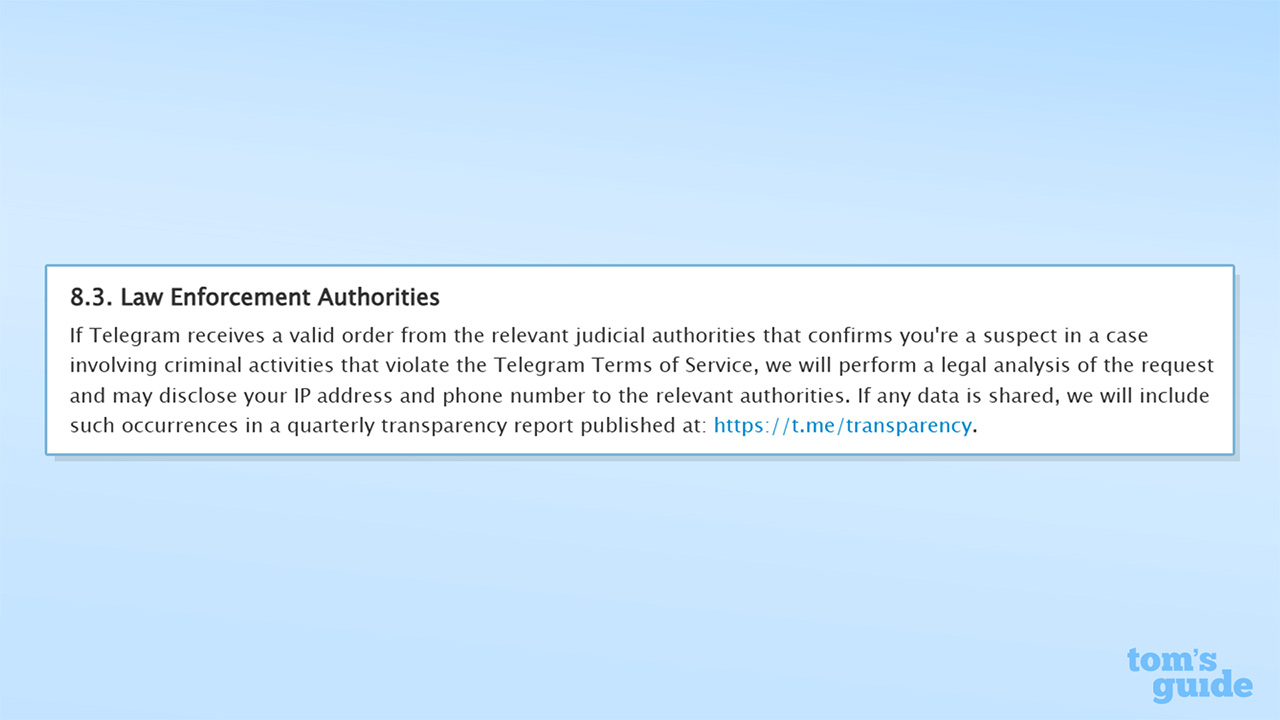
Data released by encrypted messaging app Telegram has highlighted a significant increase in the amount of data it is sharing with law enforcement agencies.
Alongside the best VPNs, Telegram is popular amongst people looking to protect their data privacy, so these revelations could make users rethink.
First reported by 404 Media, Telegram's latest transparency data (which is only available with a Telegram account and limited by region), showed the app handed over personal information, including phone numbers and IP addresses, to US authorities 900 times – affecting over 2,200 users.
Between Q1 and Q3 of 2024, there were only 14 requests in the US. But Q4 saw 886 requests, an increase of over 6,000%. There was a similar level of increase in the UK over the same period. 3 requests were filed between Q1 and Q3, and 139 in Q4 – an increase of over 4,500%.
India, who implemented invasive data laws in 2022, saw the highest number of Telegram requests, affecting the most users. The first three quarters of 2024 saw around 2,000 requests in each and 7,649 in Q4. In 2024 overall, India experienced 14,641 requests, with 23,535 users affected.
More information regarding Telegram transparency data can be found here.
Why has there been a significant change?
The increase in the amount of data Telegram is handing over coincides with a change in its privacy policy in September 2024.
The policy now states user phone numbers and IP addresses may be disclosed to the relevant authorities if they are a suspect in criminal activities that violate the Telegram Terms of Service.
The change coincided with the arrest of Telegram CEO and founder, Pavel Durov, at the end of August 2024.

Is there a way of protecting your data?
Telegram is one of the best encrypted messaging apps, but it isn't quite as secure as you may think.
Unlike its rival Signal, Telegram does not encrypt messages by default. To enable this feature, users must select "start secret chat." Secret chats do not carry over to other devices and have to be enabled individually on each device Telegram is downloaded on. What's more, chats with over two users can't be encrypted.
You should regularly inspect the app's privacy settings and check who can contact you or add you to groups. Following known security practices, such as having secure passwords, 2FA, not sharing personal information, and being wary of suspicious links are all advised when using Telegram.
Telegram collects your IP address, phone number, and contacts, something Signal does not do – Signal only collects your phone number.
You can also use a VPN to hide your IP address from third-parties when using Telegram. However you still have to enter a phone number and allow access to your contacts, so jigsaw identification is possible.
When comparing Signal and Telegram, Signal is by far the more secure messaging app and is an excellent option if you are a Telegram user looking to switch platforms as a result of recent events.







